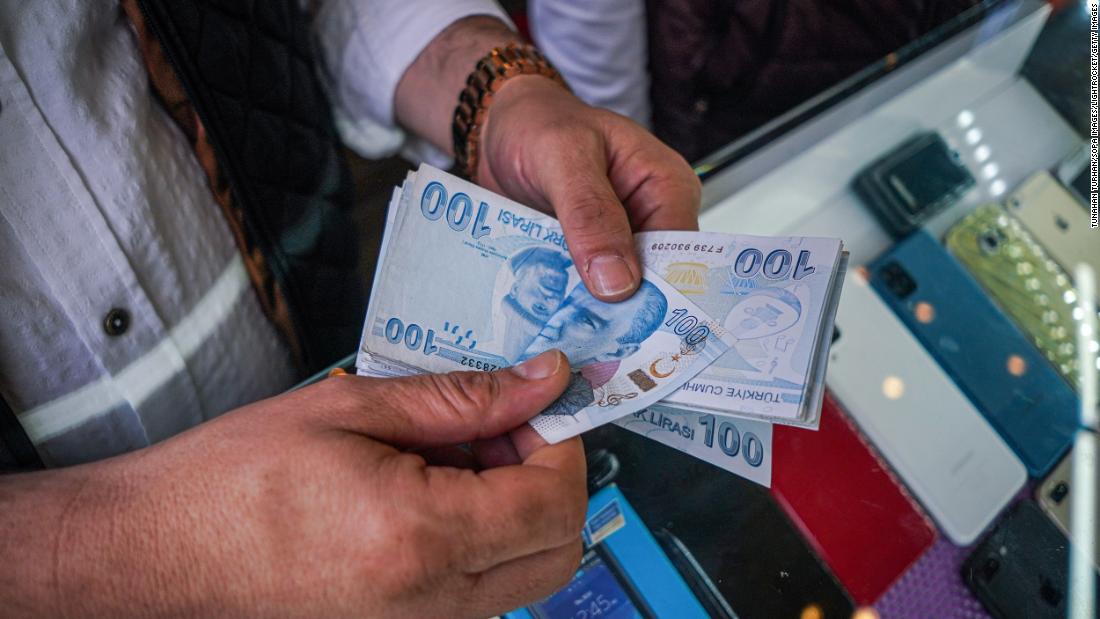The Download: producing rare earth minerals, and future AI regulation
This is today’s edition of The Download, our weekday newsletter that provides a daily dose of what’s going on in the world of technology.
The race to produce rare earth materials
Abandoning fossil fuels and adopting lower-carbon technologies are our best options for warding off the accelerating threat of climate change. And access to rare earth elements, key ingredients in many of these technologies, will partly determine which countries will meet their goals for lowering emissions.
Some nations, including the US, are increasingly worried about whether the supply of those elements will remain stable. As a result, scientists and companies alike are intent on increasing access and improving sustainability by exploring secondary or unconventional sources. Read the full story.
— Mureji Fatunde
This story is from the next magazine edition of MIT Technology Review, set to go live on January 8—and it’s all about innovation. If you don’t already subscribe, take advantage of our seasonal subscription offers to get a copy when it lands.
What’s next for AI regulation in 2024?
In 2023, AI policy and regulation went from a niche, nerdy topic to front-page news. This is partly thanks to OpenAI’s ChatGPT, which helped AI go mainstream, but which also exposed people to how AI systems work—and don’t work.
It has been a monumental year for policy: we saw the first sweeping AI law agreed upon in the European Union, Senate hearings and executive orders in the US, and specific rules in China for things like recommender algorithms.
So if 2023 was the year lawmakers agreed on a vision, 2024 will be the year policies start to morph into concrete action. Here’s what to expect.
—Tate Ryan-Mosley & Melissa Heikkilä & Zeyi Yang
These AI-powered apps can hear the cause of a cough
The news: Researchers have developed a smartphone app that can distinguish tuberculosis from other diseases by the sound of the patient’s cough. Researchers trained and tested the diagnostic tool on recordings of coughs collected from 149 people with TB and 46 people with other respiratory conditions.
Why it matters: The method isn’t foolproof. The app failed to detect TB in about 30% of people who actually had the disease. But it’s simpler and vastly cheaper than collecting phlegm to look for the bacterium that causes the disease, the gold-standard method for diagnosing TB. So it could prove especially useful in low-income countries as a screening tool, helping to catch cases and interrupt transmission. Read the full story.
—Cassandra Willyard
This story is from The Checkup, MIT Technology Review’s weekly newsletter giving you the inside track on all things biotech. Sign up to receive it in your inbox every Thursday.
Coming soon: MIT Technology Review’s annual list of 10 Breakthrough Technologies
On Monday January 8, we’ll unveil this year’s list of our 10 Breakthrough Technologies at a free LinkedIn Live event. Register for the event to watch our editors explain how the list comes together, dive deep into the technologies and how they work, and reveal some of the nominees that didn’t make the cut.
The must-reads
I’ve combed the internet to find you today’s most fun/important/scary/fascinating stories about technology.
1 Google is starting to kill off cookies
Which is seriously bad news for unprepared advertisers. (WSJ $)
+ Around 30 million Chrome users will be affected at first. (The Register)
+ A Google contractor is paying parents $50 to scan their kids’ faces. (404 Media)
2 People love pushing AI models to their limits
It can make for some thoroughly entertaining outputs. (NYT $)
+ These six questions will dictate the future of generative AI. (MIT Technology Review)
3 OpenAI offered media publishers as little as $1 million a year
It’s not all that much to use all their news articles for training their AI models. (The Information $)
+ OpenAI’s hunger for data is coming back to bite it. (MIT Technology Review)
4 Two South Koreans are accused of leaking submarine blueprints to Taiwan
Taiwan’s underwater military capabilities are of particular concern to China. (FT $)
5 DeepMind has shared its ‘Robot Constitution’
Firstly: don’t harm the humans. (The Verge)
+ What’s next for Boston Robotics? Machines that think for themselves. (Wired $)+ A vegan fast food restaurant will be staffed by robot cooks. (NY Mag $)
6 We’re getting closer to understanding life’s origins
Thanks to rocks retrieved from beneath the Atlantic seafloor. (Quanta Magazine)
7 A psychedelic helped veterans to manage their PTSD
But we still don’t understand how such drugs improve mental health. (Wired $)
+ Mind-altering substances are being overhyped as wonder drugs. (MIT Technology Review)
8 San Francisco’s driverless cars are exempt from traffic tickets
No safety driver, no ticket—for now, at least. (The Guardian)
+ The city of Austin tried to ban Cruise robotaxis from operating last Halloween. (Wired $)
+ Robotaxis are here. It’s time to decide what to do about them. (MIT Technology Review)
9 You should step away from TikTok’s ear wax-scraping gadgets
Your ears will thank you for it. (The Atlantic $)
10 Would you share your journal’s contents online?
It kind of undermines the point in writing a private diary in the first place. (Economist $)
Quote of the day
“If you don’t have AI in your product, don’t show up, it’s not worth talking about.”
—Maribel Lopez, tech analyst at Lopez Research, has grave news for exhibitors heading to giant tech showcase CES, she tells Reuters.
The big story
The quest to build wildfire-resistant homes
April 2023
With each devastating wildfire in the US West, officials consider new methods or regulations that might save homes or lives the next time.
In the parts of California where the hillsides meet human development, and where the state has suffered recurring seasonal fire tragedies, that search for new means of survival has especially high stakes.
Many of these methods are low cost and low tech, but no less truly innovative. In fact, the hardest part to tackle may not be materials engineering, but social change. Read the full story.
—Susie Cagle
We can still have nice things
A place for comfort, fun and distraction in these weird times. (Got any ideas? Drop me a line or tweet ’em at me.)
+ These cinematic head-scratchers are bound to leave you feeling deeply confused.
+ Are these the most Minnesotan pictures ever taken?
+ Jarred tomato sauce is a minefield. Knowledge is power!
+ I’m calling it—it’s the beginning of the end of our eras era.
+ Solo boardgames are a lot more fun than they sound.




